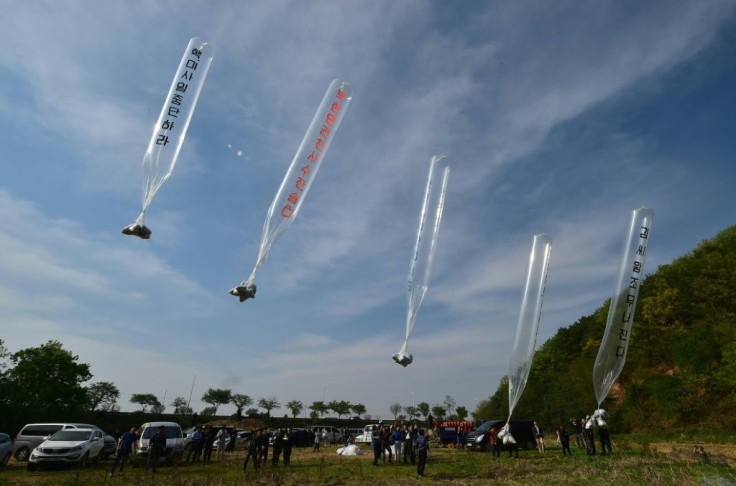North Korea News: South Korea Bans Leaflet Distribution After Threat From Kim Jong Un Regime
KEY POINTS
- South Korea has banned the distribution of leaflets over the border after a threat from North Korea
- The leaflet distributors, many of whom are defectors from North Korea, pledged to fight the law in court
- Human rights groups in the U.S. and abroad denounced the law as appeasement
North Korean defectors living in South Korea have sworn to continue sending leaflets over the borders despite a recent law banning the practice. Former North Koreans are among the most passionate distributors of leaflets, radios, and news over the border to their former countrymen even after a threat from North Korea led to South Korea banning the practice.
Park Sang-hak has been distributing leaflets for over 15 years and had his license stripped for his efforts, but has no intention of stopping.
"I'll keep sending leaflets to tell the truth because North Koreans have the right to know," he told Reuters. "I'm not afraid of being jailed."
Threats of criminal prosecution come from a law passed Monday by President Moon Jae-in’s party to the dismay of human rights activists. Starting in March 2021, people trying to get media or tools into South Korea’s authoritarian neighbor face up to three years in prison or a $27,400 fine.

The bill was introduced after Kim Jong Un’s sister Kim Yo Jong threatened South Korea with the “worst phase” of relations between the two countries if the leaflets don’t stop. The bill also curtails loudspeaker broadcasts, the equipment for which was removed in 2018 after a summit.
"They're trying to put Kim Yo Jong's order into law at her single word," said opposition lawmaker Thae Yong-ho.
Park expects to challenge the law in court with the help of around 20 human rights groups. Human Rights Watch labeled it a "misguided strategy."
"It criminalizes sending remittances to families in North Korea and denies their rights to outside information," said Shin Hee-seok of the Transitional Justice Working Group.
Rep. Chris Smith of New Jersey, the Republican co-chair of a U.S. bipartisan human rights commission, said the “ill-conceived, frightening” measures that would jail people for sharing information would only embolden North Korea’s dictator.
"Such appeasement efforts only risk inviting further North Korean provocations and demands,” he said.
When asked about Smith’s statement, South Korea’s Unification Ministry defended the law as a "minimal effort to protect the lives and safety of residents in border regions."
© Copyright IBTimes 2025. All rights reserved.





















